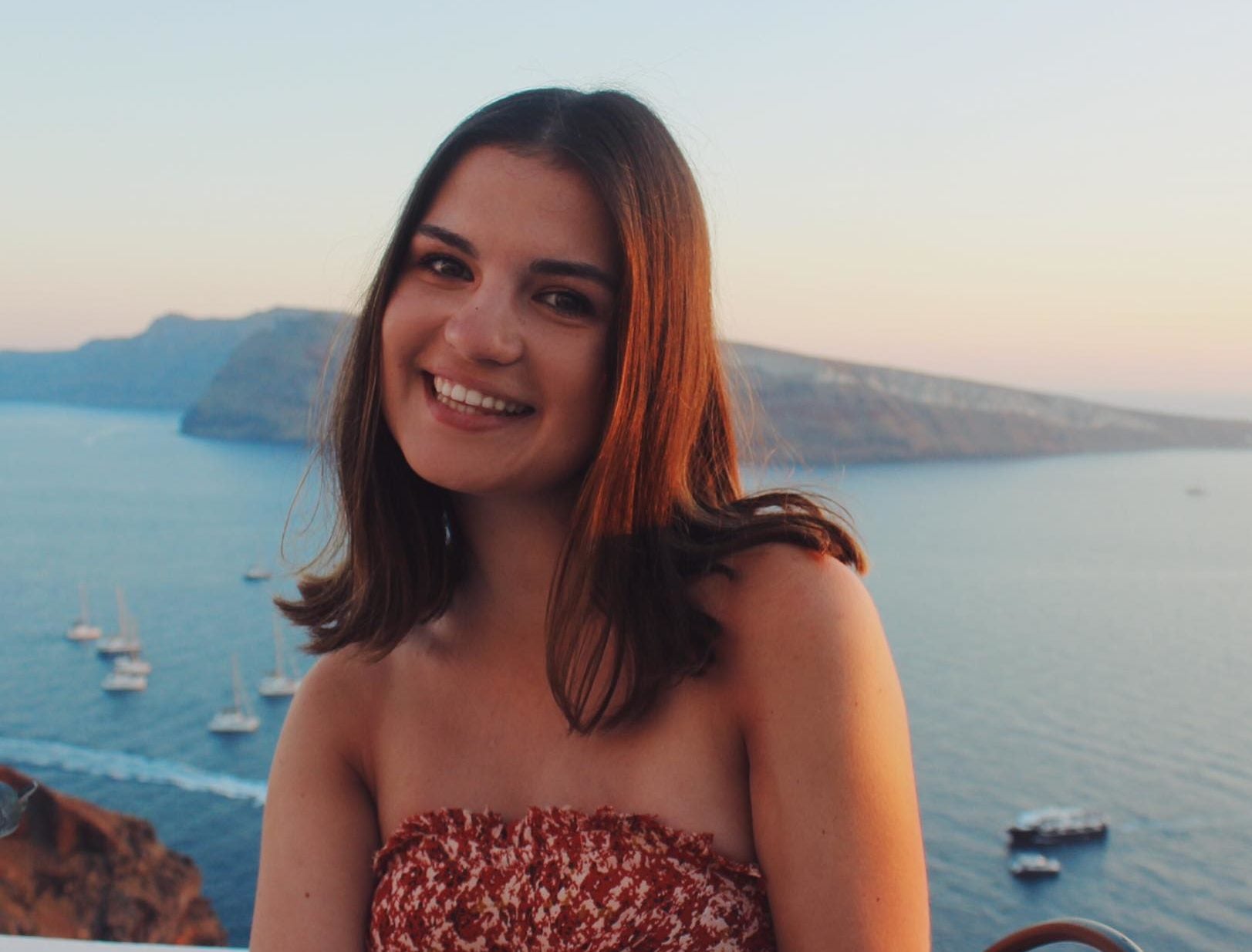Returning Home from Abroad Part One: Delaney Corcoran Speaks to the Importance of a Positive Mindset
Delaney Corcoran (C’21) from Cabin John, Maryland grew up hearing stories about her mother’s experiences abroad and had been looking forward to creating lasting memories of her own during her study abroad in Barcelona, Spain. Though COVID-19 prematurely ended her time overseas, Corcoran said that the experience has taught her the value of a positive mindset.
A Unique Time
Corcoran, who is studying Political Economy and Spanish, chose to travel to Spain to learn more about both of her majors in the hopes of eventually writing a thesis on the independence movement. She went to Spain through a program offered by Brown that began in January 2020.
While she was eager to visit her friends, who were also studying abroad in places like Berlin, Copenhagen and Lyon, Corcoran was most eager to get hands-on experience with Spanish politics.
“This is one of the places where democracy is actively being expressed and achieved,” Corcoran says. “In the United States, there is a general feeling of apathy towards politics, but in Barcelona, politics is personal, cultural and thought about every day and I was eager to immerse myself.”
Corcoran says that she is from an active political family, but knows that that is not as common in the United States. While in Spain, she witnessed small children wearing flags to represent different causes, and whole families would spend time together attending marches.
An Unexpected Journey
In the time before the announcement was made to return home, Corcoran explored Barcelona but also took a few short trips to Paris and Amsterdam. While in the Netherlands, the United States received its first positive COVID-19 case. One of Corcoran’s friends who was studying abroad in Bologna, Italy had already been sent home and told her and others to prepare for their own evacuations. At this point, Spain was still a Level One threat according to the CDC and students would not be evacuated until they reached Level Three.
“In Spain, many individuals including authority figures were not taking it as seriously, though personal space is almost non-existent and the population is very elderly,” says Corcoran. “The first time it felt like a real issue was when I was coming out of the metro and saw someone being transported into an ambulance by EMTs wearing hazmat suits two blocks from my apartment.”
Many schools remained open or simply suspended in-person meetings for two weeks. But on March 11, Corcoran and a group of her friends stayed awake to watch President Trump address the nation. Within the first two minutes, he announced that flights would be suspended from Europe in the next 48 hours. Corcoran now had less than two days to pack up her life from the past 10 weeks and return home.
“Though we found out later that this did not apply to Americans who were already abroad, we were told to return home by the university,” Corcoran says. “We received this order late Wednesday night and by Friday morning, I was on a flight headed back to U.S.”
Transitioning to Virtual Classrooms
Amidst this rapid-fire turnaround, Corcoran, like many other students, also had to determine how she would continue taking her classes from that semester, or if they would continue at all.
“As soon as I got an email from Georgetown about the Georgetown University Global Campus (GUGC), I met with my dean online and was able to begin two classes through the newly created semester for returning study abroad students, and continue to take two classes I was already enrolled in through my program in Barcelona,” Corcoran says. “I feel very lucky because friends from other universities that were part of my program could lose their credit for the semester since their schools were not offering courses to their students whose study abroad trips abruptly ended.”
Corcoran says that through GUGC she is able to take a major credit in addition to a common core credit, which was more than she was originally scheduled to earn.
However, the transition certainly has not been seamless. Corcoran said that on top of the stress of moving and the added exertion of jetlag, she found out that she had been in contact with four individuals who had COVID-19.
“I felt terrible because I found out after returning home to my parents,” says Corcoran. “But we took quarantine very seriously. I recently took the antibody test and came up negative, which means I never had it, but in these circumstances, it is so much better to be safe than sorry.”
Corcoran says that life is certainly different – she has yet to see her friends in person since returning to the United States. However, she says that her biggest takeaway from this experience has been the power of positivity.
“I think your mindset can really change how you view something, and you have to be able to frame things in a more positive way,” says Corcoran.” Though there is a space to be sad about what happened, there is a lot that I have to be grateful for, and focusing on the positives has been helpful.”
She also expressed how thankful she is to be a part of a college community that cares about each student individually.
“Georgetown has done a good job of listening to students and being so flexible with the different experiences and voices of each person,” says Corcoran. “My Georgetown professors have been so flexible and supportive. Everyone seems to have taken on a lot of empathy and I can tell that the faculty and staff are working hard to ensure that students are a having good experience despite us being apart.”
Click the links below to view parts two and three of our Returning Home from Abroad series
Returning from Abroad Part Two: Featuring Danielle Guida’s Journey Home from Italy
